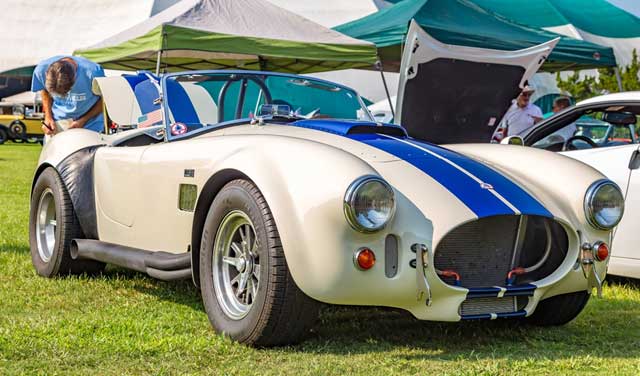When it comes to a universally agreed definition of what makes a car classic, people tend to disagree. Likewise, if you're looking for classic car insurance, you'll find that one person's 'classic' is another's 'old banger'.

What is a classic car?
Each 1 April, vehicles constructed more than 40 years before January 1 of the current year automatically become exempt from paying Vehicle Excise Duty (VED). So, for example, in 2019 vehicles built in 1978 become exempt.
While you might assume these venerable vehicles are classics, including cars, vans, motorcycles and more, technically it's just age that puts a car in this category.
Broadly, a classic is a car with enough historical or aesthetic appeal to be worth preserving or restoring rather than scrapping. Cars built before the end of the Second World War are more precisely defined:
- Veteran cars – built before WWI.
- Vintage cars – manufactured between 1919 and 1930.
- Post-vintage – cars manufactured between 1931 and 1945.
Finding classic car insurance
There's no standard definition of a classic car when it comes to the government. For tax benefit reasons, HM Revenue & Customs (HMRC) says that a car over 15 years old – and worth a minimum of £15,000 – is a classic. Meanwhile, the DVLA's vehicle tax rules label anything more than 40 years old as historic or classic.
Regardless of the official terminology, each insurance company might have a different set of requirements to determine whether a car is a true 'classic'.
Is it cheaper to insure a classic car?
Yes, usually. Most classic car insurance providers assume that the owner of a classic car will treat it like a commodity. It's expected that a classic car will be driven less than a regular car, and that care and attention will keep it safe.
What to consider when getting classic car insurance
Unlike cars used for getting us from A to B, classic cars are rarely used for daily transport. Instead they're hobbies, collectables and even commodities. But assessing the value of a classic car is more difficult than working out what a modern car is worth.
It's a good idea to avoid an insurance policy that pays out the 'market value' if your vehicle is stolen or written off. If possible, agree to a realistic value for your classic car before buying a policy – there are specialists who can help estimate a fair, accurate value.
And don't forget that some classic cars can increase in value with time, so find an insurer willing to review your car's worth over the years.
Using a classic car for special occasions
When it comes to classic car insurance, look for a policy that'll cover you if you decide to lend your car out for special occasions.
Because of the aesthetic appeal of many classic cars, they're often used for weddings or driven at fairs and exhibitions, so you'll want to make sure you're covered if your car gets damaged at one of these events.
Do remember, if your classic car is used for hire or reward, or commercially, it won't be exempt from vehicle tax even if 40 years old or more. Plus you'd have to declare any business use to the insurer.
If you've got a classic car, finding a specialist insurer is simple enough. But don't worry if your car is only a classic in your heart, our Defaqto rated insurance has you covered.
